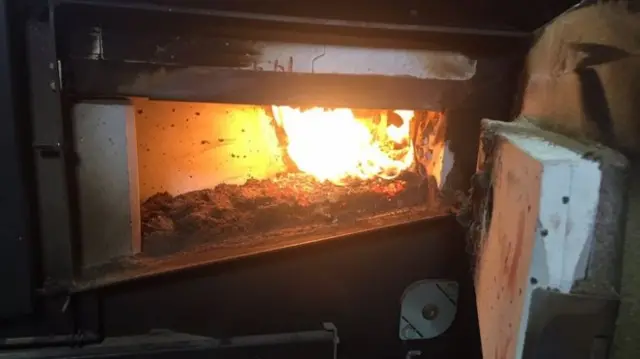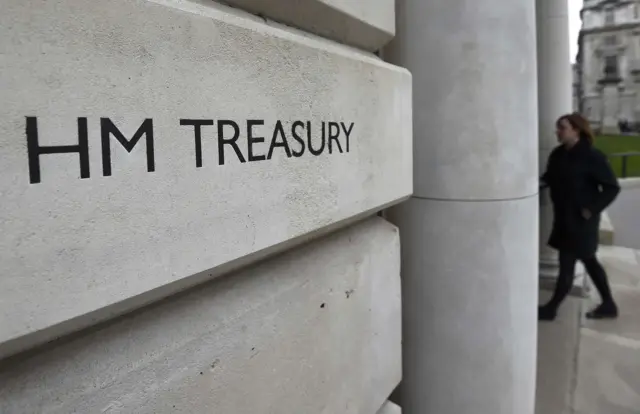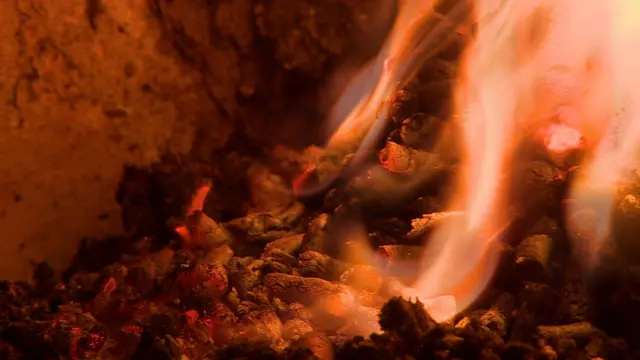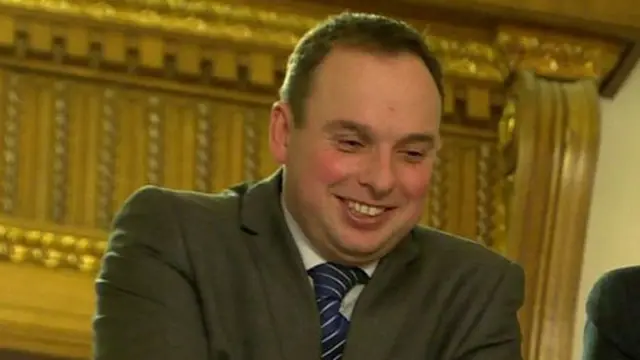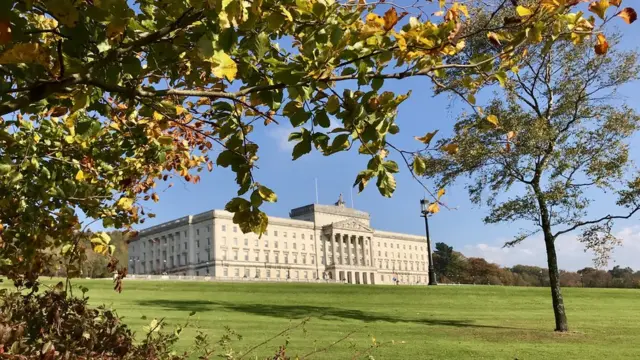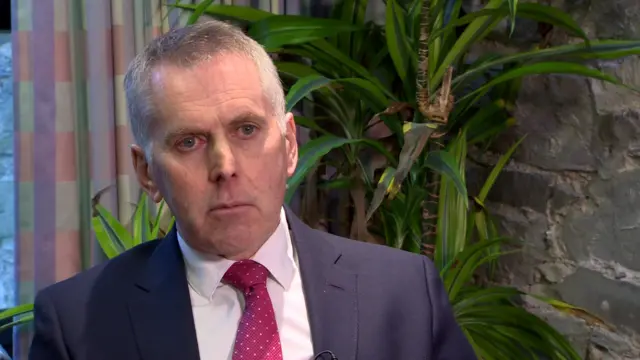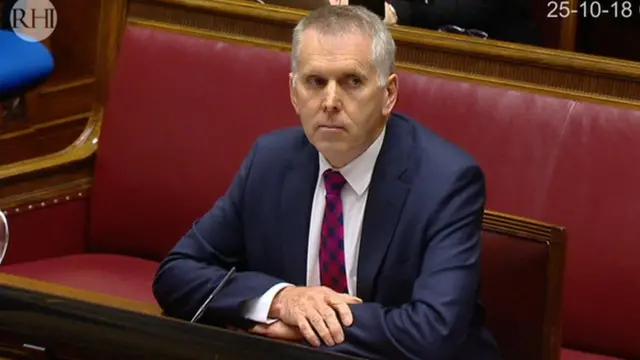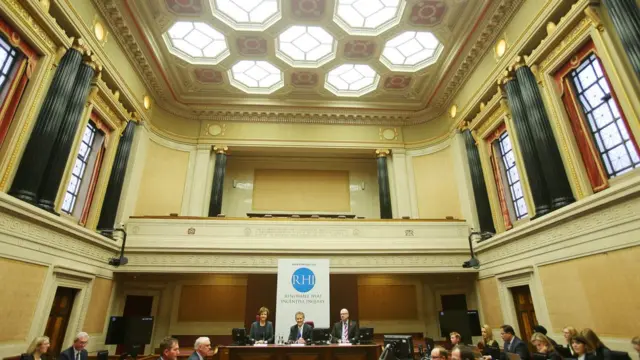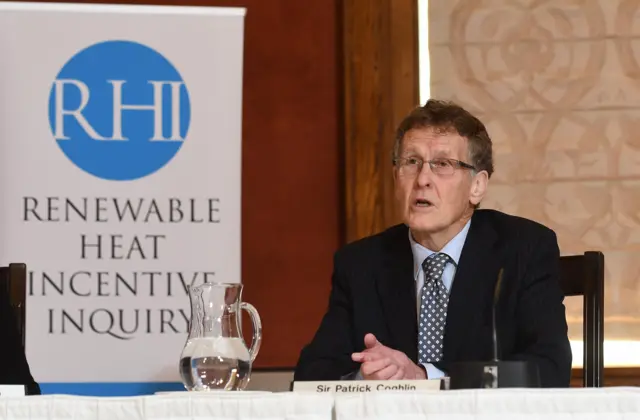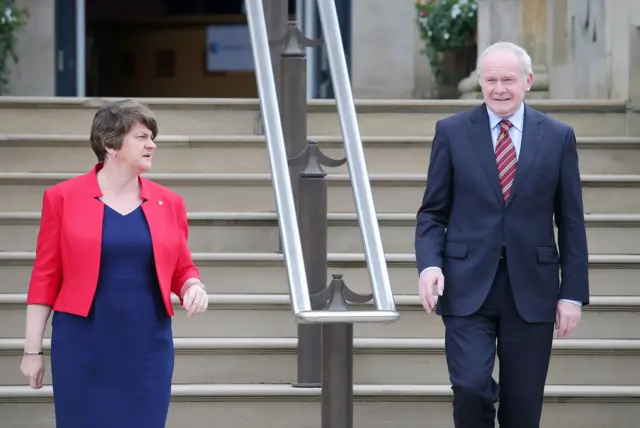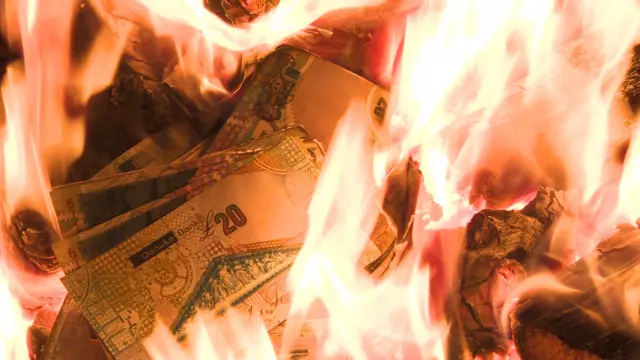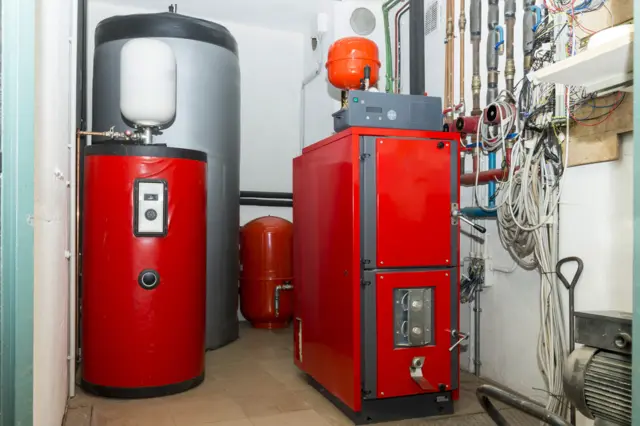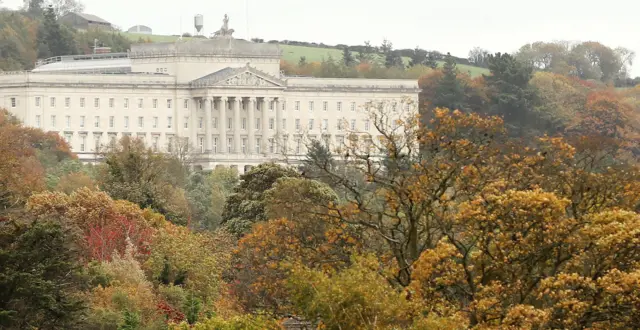'Universal view was RHI had to be shut quickly'published at 11:50 BST 25 October 2018
It was a "universally-held" view in January 2016 that the RHI scheme needed to be closed quickly, says David Sterling.
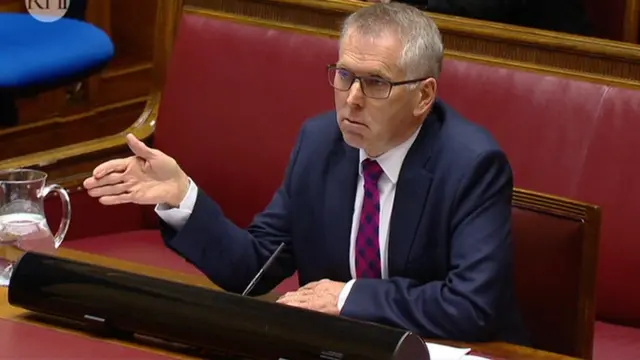 Image source, RHI Inquiry
Image source, RHI InquiryAsked if he sensed reluctance from anyone to the shutdown, he says he didn't - the only "debate" about it was how quickly it should be done.
"A balance had to be struck between quick closure and at the same time minimising the risk that a successful [legal] challenge might have been mounted, which could've put us in a much worse position."
